I am new to C programming and i am really confused on below code:
#include <stdio.h>
#include <string.h>
int main(void)
{
char arrstr[6];
int i;
printf("Enter: ");
scanf("%s",arrstr);
printf("arrstr is %s\n",arrstr);
printf("length os arrstr is %d\n",strlen(arrstr));
for(i=0;i<20;i++)
{
printf("arrstr[%d] is %c, dec value is %d\n",i,arrstr[i],arrstr[i]);
}
return 0;
}
As from my understanding, after the declaration of arrstr[6], the compiler will allocate 6 bytes for this char array, and consider the last '\0' char, 5 valid chars can be stored in the char array.
But after i run this short code, i get below result:

The printf shows all chars i input, no matter how long is it. But when i using an index to check the array, seems i cannot find the extra chars in the array.
Can anyone helps to explain what happened?
Thanks.